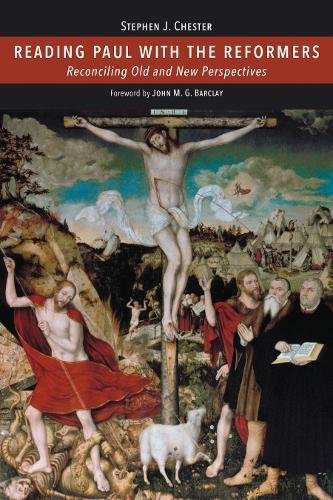Ben. Probably the majority of those who have written a commentary on Romans in the last 30-40 years have concluded that Rom. 7.7-25 is not about Paul’s autobiography, nor about the state of the Christian life (even Moo). It is a Christian view of a non-Christian situation. This of course is the direct opposite of Luther’s take on Romans 7, and in the last 50 years, only Cranfield has really strongly agreed with him. What is your take on this issue? As you say, some of the Reformers did not read Rom. 7 that way.
Stephen. I do not write a lot about Romans 7 in Reading Paul with the Reformers. However, this is one of those areas where I largely part company with the interpretations offered by Luther and Calvin, who regard this passage as discussing Paul’s struggle with sin in the Christian life. My view is that throughout 7:7-25 there is an autobiographical element to what Paul says, but he speaks of himself as typical or representative. In 7:14-25 he speaks not of his current experience as a believer, nor of his former life as a Pharisee as it had appeared to him then, but rather of his former life as a Pharisee as he now sees it from his perspective in Christ. He describes an earlier losing struggle with sin, but does so from a perspective stripped of former illusions, seeing his previous life for what it really was. The change that has allowed Paul to see the truth of his previous condition is his conversion. Before he met Christ on the Damascus road, Paul would have regarded his relationship to the law positively. The law was a sure guide to the divine will and to obedience to it. However, Paul now knows that despite all his zeal for the law he sinned against God in persecuting the church. Under the impact of this realization Paul has reconstructed his biography, coming to tell his story in ways previously unimaginable. What he says in Romans 7 concerning his relationship with the law is one of the expressions of that reconstruction. I make this argument at length both as one of the contributors to Perspectives on our Struggle with Sin: 3 Views of Romans 7 (Broadman & Holman, 2011) and earlier in Conversion at Corinth (T&T Clark, 2003).













